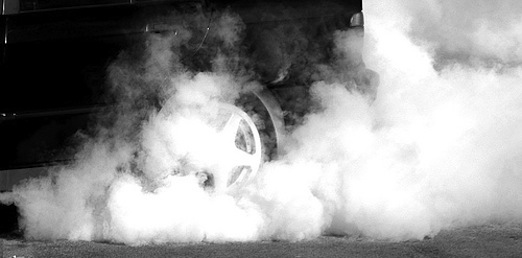The 3 Signs of Job Burnout
 When an employee is dissatisfied with the job, over time he is likely to suffer from job burnout.
When an employee is dissatisfied with the job, over time he is likely to suffer from job burnout.
Psychologists have defined burnout as the erosion of engagement. This means that work that was once pleasant, important, and meaningful becomes unpleasant, unfulfilling, and meaningless.
Psychologist Christina Maslach from the University of California at Berkeley is one of the pioneering researchers on job burnout and created the Maslach Burout Inventory to measure burnout from work.
She has found that burnout can contribute to depression and that burnout can cause a number of problems including, physical and medical problems, other psychological problems, increased use of alcohol and drugs, low self-esteem, a sense of failure, dislike of people, conflicts in relationships, irritability, suspiciousness, paranoia, frustration, and apathy. A survey from the American Psychiatric Association, found that in terms of lost productivity, depression costs employers more than any other illness at $30 to $44 billion per year.
There are three psychological signs that predict burnout in the workplace: exhaustion, cynicism, and ineffectiveness.
What does each of these terms mean?
Exhaustion is defined as when an employee is overextend and depleted of one’s emotional and physical resources. Exhaustion can impact the workers stress level which we have seen can impact the worker’s mental, emotional, and physical health. An exhausted worker is one who is drained of energy and enthusiasm. In order to avoid losing more energy at work, the employee might choose to detached from projects as well as coworkers or clients, in order to conserve his waning resource.
According to a study from the health research firm Oxygen Plan Corporation, this costs employers $4,888 per employee per year from lost productivity, absenteeism, health expenses, turnover, and disability expenses and add up to a total US economic impact of $400 billion.
The second sign of burnout is cynicism. Cynicism represents when the employee begins to question if there is any purpose or point to her tasks and responsibilities. Once the employee looses interest and energy she can view her work as insignificant and meaningless. Soon cynicism leads to ineffectiveness.
Finally, ineffectiveness typifies the feeling of incompetence and lack of achievement and productivity at work. If the worker has given up hope and lacks interest, productivity drops significantly. With no motivation to want to perform and no energy to actually perform, the employee becomes incapable of producing any results.
Job burnout has serious health risks, so it is important to look out for the warning signs that you might be suffering from burnout.
Photo Credit: Flickr/Lori Hersberger
